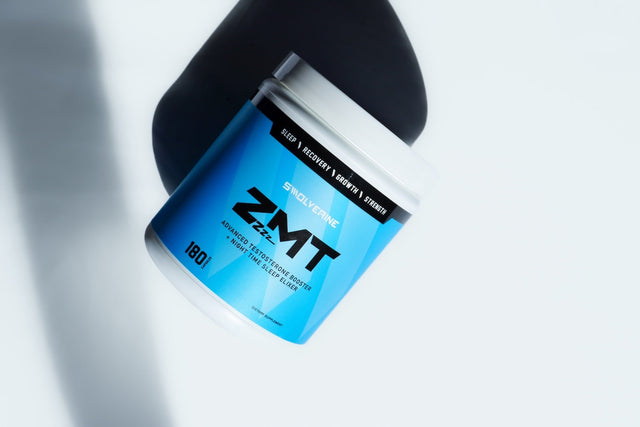Some people argue that the supplement industry is “unregulated” by the FDA, but in fact it is - how they’re regulated is where the controversy lies.
How Are Supplements Regulated?
Supplements are not regulated like pharmaceutical drugs; they’re regulated as food. The FDA regulates the safety and efficacy of drugs sold in the United States. In order for a pharmaceutical company to introduce a new drug, it must go through a rigorous preapproval process or pre-market phase. During this pre-market phase, the FDA will review a manufacturers application to market and sell a drug. Once a drug is approved, it goes into the post-maket phase, where the FDA will continue oversight of the safety and efficacy of that drug, for the duration of its use.
Before a pharmaceutical company can launch a new drug, the FDA has to determine and conclude that the drug is safe and efficacious when indicated as a treatment for a specific medical condition. Launching a new drug, costs millions of dollars in clinical research beginning with animal studies. If the animal studies prove to be effective, they move onto human trials to develop and substantiate a pharmaceutical product. Once the drug is proven to have clinical benefit during several phases of human trials, it can then be submitted for FDA approval.
Supplements are not held to the same grueling standards as pharmaceuticals. In fact, supplements can go to market, without any safety, purity, and or quality testing by the FDA.
Prior to 1994, supplements the manufacturing process, quality assurance and control, and labeling of supplements were all closely monitored and regulated by the FDA. However, many people felt that the FDA was too restrictive in regulating dietary supplements. As a result, Congress passed the Dietary Supplement Health and Education Act (DSHEA) in 1994. The new act placed dietary supplements in a special category of “foods” and defined a “dietary supplement” as a product taken by mouth that contains a “dietary ingredient” intended to supplement the diet.
The Problem With The Supplement Industry
Although supplements can go to market without preapproval, the DHSEA does state that new dietary supplements must undergo premarket review to analyze safety data before it can be legally sold. Manufacturers must provide evidence to show that dietary supplements it produces are safe and that any product claims are proven and substantiated, nor false, or misleading. Because of this, supplement manufacturers are required to include "This statement has not been evaluated by the FDA. This product is not intended to diagnose, treat, cure, or prevent any disease" on the label.
In 1994 the Nutrition Labeling and Education Act (NELA) was passed. NELA gives the FDA the ability to review and approve health claims for dietary supplements and foods. However, since the inception of NELA, it has only reviewed a few claims.
Even though the DHSEA requires new ingredients to be evaluated, prior to being sold, the FDA does not have the authority to stop it from going to market. Thousands of food additives and products have become part of our food system, because producers deem them “generally recognized as safe” (GRAS). Introduced in 1958 the GRAS loophole allows producers to take new ingredients to market without informing the FDA. Therefore, since DHSEA classified supplements as foods, the law allows any food products to go directly to market and carry unsubstantiated claims.
The problem with this of course, is that only after adverse effects have been reported, does the FDA have a substantiated claim to prove the product is unsafe. Most of the time, the FDA doesn’t even know a new ingredient is introduced in the market, until after the fact, when a report is acknowledged.
Since DHSEA was enacted in 1994, the supplement industry has grown from 4 billion, to now over 80 billion, according to the FDA. While most of the supplement industry does abide by the regulations, the huge growth has allowed a few bad apples to sell dangerous products with unsupported claims. However, this can be seen within any industry.
Although supplements are not subject to premarket approval, manufacturers must adhere to a number of federal regulations before a product goes to market. Further, supplement manufactures must have evidence that shows the ingredients they use in their supplements are generally safe if requested by the FDA. For this exact reason, most quality supplement manufacturers will employ a team of researchers, in charge of several quality control and quality assurance protocols, such as product education, product development, and assisting in clinical trials conducted by independent research teams at universities and clinical research sites. Legal teams are also employed to work in conjunction with marketing, in order to substantiate product claims, and adhere to FDA label requirements.
Beware Of New And Unproven Ingredients
Often times, you’ll find ingredients you’ve never heard of on the back of a supplement label. Promoted by celebrities, Instagram influencers and millions of dollars in ad spend, it’s easy to fall victim to the hype marketing claims. It’s important to focus on the facts. Some supplement companies will provide independent clinical studies to support product claims and provide transparency.
Supplements are not subject to premarket approval, and often come with unfounded claims to improve performance outcomes and health so long as they don’t claim to “treat, diagnose, prevent, or cure diseases.”
Many products sold online and in retail stores, are not dietary supplements at all, but illegally marketed, unapproved new drugs, which have not been reviewed for safety and efficacy before being marketed. This is why as a consumer, it’s imperative to research the ingredients you’re consuming before purchasing a supplement.
If the ingredient sounds strange, then research it. Proven ingredients like Beta-Alanine, Creatine, Glutamine, and BCAAs have numerous clinical studies, backing their safety and efficacy and proving their ergogenic and performance benefits.
Beware Of Proprietary Blends
Manufacturers often use a loophole to make product cost cheaper, called proprietary blends. The FDA requires all supplement manufacturers to list all of the ingredients in a product, on its label along with the appropriate amount of each in terms of weight.
However, if the ingredients are part of a proprietary blend – the specific amount of each individual ingredient in the proprietary blend does not have to be listed, only the total.
This gives supplement manufacturers the opportunity to claim that a product contains specific ingredients and underdose those ingredients to save on raw ingredient cost. Without the proper clinical dose, products are ineffective and since the FDA does not evaluate supplements for efficacy, supplement brands can sell these products despite their lack of clinical benefits.
If a company claims they use “clinical doses” it’s important to find the research that backs their dosing claim. Otherwise, there are no regulations to ensure that their claims are not misleading or false.
RELATED ARTICLE What Are Proprietary Blends In Supplements?
How To Find Supplements You Can Trust
As you know, supplements can be tricky. Even though there are technically regulated by the FDA, they are not held to the same scrutiny as pharmaceutical drugs. Therefore, it is the consumers responsibility to do research before purchasing a supplement to ensure its effectiveness.
Make sure to look for the following items before considering the use of a supplement
Step 1: Does the supplement contain proprietary blends?
If so, then do not purchase it, because you don’t know what the supplement really contains. Most pre workout and post workout products will contain proprietary blends, and underdose the ingredients you need to improve performance. If the supplement does not have enough of those ingredients, they will be ineffective.
Step 2: Are the ingredients in the supplement proven and clinically dosed?
Don’t fall for false and misleading marketing claims. Make sure the ingredients in the supplement are supported with evidence-based outcomes and contain the appropriate dose. Supplement manufacturers will use hype marketing around “the latest and greatest” new ingredients, which have no merit, and no research that proves they work.
Step 3: Does the company provide clinical evidence to support their product claims
If the supplement you’re interested in does provide clinical research, then simply conduct a google search and find the appropriate clinical dose used in clinical research before you purchase a product.
Step 4: Does the company provide a certificates of analysis of their products
A Certificate of Analysis is a document issued by the Quality Assurance Department that provides analysis of each product testing for contamination and foreign constituents as part of a quality control process. If you’re unsure of a product or specific ingredient in a supplement, contact the manufacturer and request a certificate of analysis.
Step 5: Does the company follow Certified Good Manufacturing Practices?
cGMP facilities are held liable for accurate representation and reporting of manufactured products, ensuring that they consistently meet the established specifications for identity, purity, strength, and composition and limits on contaminants, and has been manufactured, packaged, labeled, and held under conditions to prevent adulteration under sections 402(a)(1), (a)(2), (a)(3), and (a)(4) of the act" [referring to the Federal Food, Drug, and Cosmetic Act]
Are Supplements Regulated By The FDA: Takeaway
Although supplements are not held to the same standard as pharmaceutical drugs, they are regulated, just not FDA approved. As a consumer, it is crucial that you do your research prior to purchase. Dietary supplements DO NOT need FDA approval prior to marketing their products. Just because you see a supplement product on a store shelf does NOT mean it is safe or effective. Make sure the product contains proven ingredients, with the correct dose of each ingredient, otherwise the product will be ineffective despite manufacturer claims. At that point, you might as well just throw your money down the drain.
Are You Looking For A Supplement Company That You Can Trust?
References
Kreider, R.B., Almada, A.L., Antonio, J. et al. ISSN Exercise & Sport Nutrition Review: Research & Recommendations. J Int Soc Sports Nutr 1, 1 (2004). https://doi.org/10.1186/1550-2783-1-1-1
Center for Food Safety and Applied Nutrition. “What You Need to Know about Dietary Supplements.” U.S. Food and Drug Administration, FDA, www.fda.gov/food/buy-store-serve-safe-food/what-you-need-know-about-dietary-supplements.
Center for Food Safety and Applied Nutrition. “Beware Of Fradulent Dietary Supplements.” U.S. Food and Drug Administration, FDA www.fda.gov/consumers/consumer-updates/beware-fraudulent-dietary-supplements







